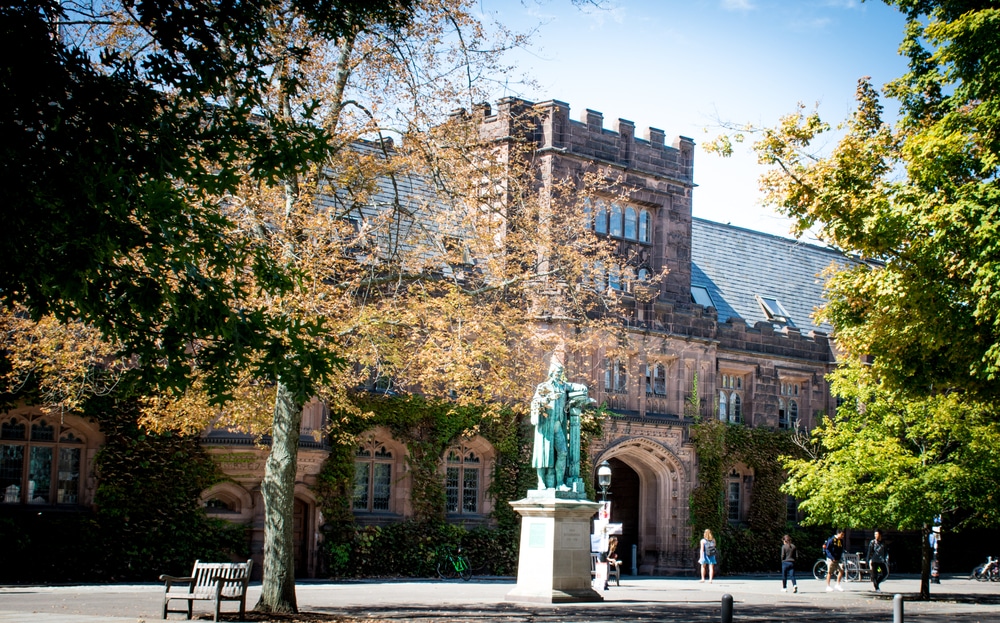Unraveling the Princeton Greek Life
As you embark on your college journey, you’re likely to encounter a myriad of opportunities that will shape your academic and social experiences. One such opportunity is joining a Greek organization. At Princeton University, Greek life offers a unique blend of camaraderie, leadership, philanthropy, and personal growth. This comprehensive guide will delve into the vibrant world of Princeton Greek life, providing you with a clear picture of what to expect.
What are the Greek organizations at Princeton?
What are Princeton’s Greek organizations? Princeton is home to several fraternities and sororities, each with its distinct identity. Some of the prominent Greek organizations include:
Alpha Epsilon Pi (AEPi)
Known for its strong brotherhood, AEPi is a Jewish fraternity that welcomes members from all backgrounds. AEPi’s commitment to brotherhood is evident in their strong bonds of friendship. The fraternity is known for its vibrant social scene, hosting events that bring together members and non-members alike. Despite its roots in Jewish traditions, AEPi is inclusive, welcoming members from diverse backgrounds.
Kappa Alpha Theta (Theta)
As the first Greek-letter fraternity for women, Theta is committed to fostering leadership, scholarship, and service among its members. Theta is more than just a sorority; it’s a platform for empowering women. Through various leadership programs and community service initiatives, Theta fosters personal growth among its members, preparing them for success beyond college.
Sigma Chi (Sig Chi)
Sig Chi is renowned for its leadership programs. Sig Chi stands out for its commitment to character development. The fraternity’s leadership programs are designed to instill values such as integrity, wisdom, and ambition among its members.
Zeta Psi (Zete)
Zete is one of the oldest fraternities at Princeton. Zete’s rich history and traditions are a testament to its enduring presence at the university. The fraternity’s strong alumni network offers members valuable connections, opening doors to numerous opportunities.
Kappa Alpha Society (KA)
KA is a co-ed fraternity that prides itself on inclusivity and a strong sense of community. KA’s commitment to inclusivity is reflected in its diverse membership. The co-ed fraternity is known for its tight-knit community, fostering a sense of belonging among its members.
What role does Greek life play in Princeton’s overall student life?
What part does Greek life play in the overall student life at Princeton? Greek life is an integral, albeit unofficial, aspect of Princeton’s student life. The Greek organizations, composed of sororities and fraternities, are not formally recognized by the University, yet they’ve steadily made a niche for themselves in Princeton’s social landscape.
The Princeton Greek life plays a significant role in shaping the student experience. The dynamic between the University’s stance and the presence of Greek organizations creates a unique environment that subtly influences Princeton’s social atmosphere. Here’s how:
Greek Life as a Social Hub
Despite the diverse range of social events and student organizations Princeton offers, Greek life provides an alternative setting for socialization. Fraternity and sorority events—whether formal gatherings, informal meet-ups, philanthropic projects, or social mixers—are renowned for bringing together a broad array of students, fostering relationships, and encouraging connections. The tight-knit bonds of brotherhood and sisterhood that Greek life cultivates provide a sense of belonging and camaraderie for its members.
Community Service and Philanthropy
Princeton Greek life serves a key role in promoting community service and philanthropic efforts. Greek organizations often work on service projects and organize fundraisers, contributing to local communities, national causes, and international charities. In this way, they augment the culture of service that is intrinsic to Princeton’s ethos. For many students, these philanthropic endeavors provide opportunities to give back, make a real-world impact, and develop a stronger understanding of social responsibility.
Professional Networking
Greek life at Princeton also provides a platform for professional networking. As part of a fraternity or sorority, students gain access to an extensive network of alumni who can offer advice, mentorship, and connections in various industries. These networks can open doors to internships, job opportunities, and even lifelong careers, complementing the full career support services offered by the University.
Leadership Opportunities
Greek life plays a pivotal role in fostering leadership skills among Princeton students. Greek organizations run much like small businesses, with roles in management, finance, event planning, recruitment, and more. Serving in these roles provides hands-on leadership experience, enhancing students’ practical skills and preparing them for post-college roles.
Fostering Personal Growth
Princeton Greek life plays a meaningful role in students’ personal growth. The process of joining a Greek organization, and the experiences after that, challenge students to step out of their comfort zones, enhancing their interpersonal skills, self-confidence, and understanding of themselves. The bonds of brotherhood or sisterhood formed within these organizations often extend beyond college, resulting in lifelong friendships.
In conclusion, while Greek life doesn’t encompass the entirety of the Princeton student experience, it does offer its members unique experiences and opportunities. Whether through social events, service projects, networking opportunities, or leadership roles, Greek life at Princeton plays a notable role in enriching overall student life.
How does the rush process for Greek life at Princeton work?
How does Princeton University’s rush process for Greek life work? Navigating the rush process at Princeton University can initially seem like quite the puzzle. But no worries, we’re here to help you demystify it. While each Greek organization may have its specific procedures and traditions, the overall pattern remains the same.
Rushing typically happens at the start of the spring semester, with most organizations opening their doors to sophomores. Why in the sophomore year? Princeton University policy prevents freshmen from joining Greek organizations. This gives freshmen a year to settle into college life before deciding whether Greek life is right for them.
Fraternities’ Rush Process
The rush process for fraternities at Princeton can often be more informal compared to sororities. It involves a series of social events organized by the fraternity, like meet-and-greets, sports games, or dinners, spread out over a couple of weeks. The aim here is to allow potential new members (PNMs) to meet the fraternity brothers, understand the organization’s values, and get a feel for the brotherhood.
Post these events, fraternities extend ‘bids’ or formal invitations to join, to the individuals they feel align well with their fraternity. Accepting a bid means committing to join the fraternity and begin the new member education process.
Sororities’ Formal Recruitment
Sororities at Princeton follow a more structured recruitment process, typically called ‘formal recruitment’. It’s broken down into different rounds, usually spanning a single, intensive weekend.
- Open House Round: This is the initial round, where PNMs visit each sorority. It’s an opportunity to make a first impression and get a broad understanding of each organization.
- Philanthropy Round: PNMs learn about the sorority’s philanthropic focus and community service endeavors. This helps PNMs align their values with those of the sororities.
- Preference Round: This is the final round before bids are given. It’s often more personal and emotional, with PNMs and sorority sisters sharing stories that highlight the sisterhood’s impact.
- Bid Day: The exciting culmination of the process. Sororities extend bids, and those who accept join the new member program of their chosen sorority.
At its core, the rush process is about mutual selection. It’s as much about the Greek organizations deciding who they believe fits into their brotherhood or sisterhood as it is about the PNMs deciding which fraternity or sorority aligns with their values, social preferences, and long-term goals.
How does Princeton regulate Greek life on campus?
How is Princeton University’s Greek life governed on campus? Greek life at Princeton University exists in an interesting paradigm due to the University’s non-recognition policy. Princeton University does not formally recognize fraternities and sororities, resulting in an autonomous Greek system with its own set of rules and regulations.
The Policy of Non-Recognition
Princeton University, committed to creating an inclusive environment where every student feels welcomed, maintains a policy of non-recognition of fraternities and sororities. The University believes that Greek organizations, with their selective membership practices, might create social exclusivity. As such, they do not receive direct support, funding, or advisement from the University and cannot use Princeton’s name in their official titles or activities.
Self-Governance and National Affiliations
Despite the lack of formal recognition, Greek organizations at Princeton are far from unregulated. They are largely self-governed and follow the guidelines set by their national or international headquarters, ensuring they maintain high standards. The national offices often provide oversight, support, and resources, fostering a well-structured and responsibly run Greek system.
Adherence to University Rules and Local Laws
While the University does not directly regulate Greek organizations, they still operate under the same standards of conduct as any other student group. They must abide by all University policies and local laws, especially concerning hazing, alcohol, and other risk management issues. Violations can result in individual students or entire organizations facing disciplinary action from the University or their national office.
Freshman Rush Ban
One of Princeton University’s direct policies concerning Greek life is a ban on first-year students rushing. The administration believes that first-year students should focus on acclimating to college life and exploring the myriad of other opportunities available before deciding to join a Greek organization. This policy is strictly enforced, with Greek organizations facing serious consequences for extending bids to first-year students.
Facilitating Inclusivity and Integration
Although the University does not formally recognize Greek life, it encourages these organizations to foster an inclusive environment and integrate with the wider University community. For instance, Greek organizations often collaborate with other recognized student groups to host social events or carry out community service projects.
In conclusion, while Princeton University maintains a policy of non-recognition of Greek life, the Greek system is far from unregulated. It functions under a set of rules, both self-imposed and externally guided, that ensure the organizations maintain high standards and promote a positive, inclusive environment on campus.
What are the benefits of joining a Greek organization at Princeton?
What are the advantages of becoming a member of a Greek group at Princeton University? As a student contemplating joining Princeton Greek life, it’s essential to understand the myriad of benefits these organizations can offer. From close-knit communities to leadership experiences, Greek life provides an array of opportunities to enrich your college journey.
Brotherhood and Sisterhood
Greek organizations offer a tight-knit community within Princeton’s broader university landscape. Joining a fraternity or sorority means gaining a supportive network of brothers or sisters who will share your ups and downs during college and beyond. These close bonds often extend beyond the campus, resulting in lifelong friendships.
Leadership Development
Greek life is an excellent platform to enhance leadership skills. Whether you’re elected to an executive board position, chair a committee, or lead a project, these experiences offer hands-on opportunities to develop skills such as decision-making, conflict resolution, and team management. Such practical experience can significantly bolster your resume and set you apart in the job market post-graduation.
Philanthropy and Community Service
Greek organizations at Princeton are committed to philanthropy and community service. Being part of these groups provides ample opportunities to engage in service projects, fundraisers, and other philanthropic endeavors. This involvement fosters a sense of social responsibility, allows you to make a difference in your community, and might even steer you toward a cause you’re passionate about.
Networking Opportunities
Greek life introduces you to a wide network of fellow students and alumni, which can be instrumental in your professional journey. Whether it’s securing internships, finding job opportunities, or seeking career advice, the connections you make through your Greek organization can provide invaluable resources.
Academic Support
Many Greek organizations place a high priority on academic success and provide resources to help members achieve their academic goals. This might include organized study hours, tutoring from older members, or even scholarships and grants for high-achieving members.
Social Activities
Princeton Greek life is also about having fun! Greek organizations host various social events such as formals, mixers with other organizations, brotherhood or sisterhood retreats, and more. These events provide a break from academic pressures, allow you to create lasting college memories, and deepen the bonds within your Greek family.
It’s important to remember that Greek life isn’t for everyone, and that’s okay! The benefits listed above can also be found in various forms through other clubs, sports teams, and organizations at Princeton. However, if these advantages align with what you’re seeking from your college experience, Greek life might just be a perfect fit for you!
Embarking on your college journey is an exciting and transformative time. As you consider Princeton University and wonder about the potential to enrich your experience through Greek life, remember that it’s about finding the right fit for your personal and academic goals. Greek life can offer a supportive community, leadership opportunities, service projects, and networking possibilities that could be instrumental in shaping your college experience and beyond.
Remember, this decision is one among many you will make in your journey of exploration, growth, and self-discovery in college. Whether you choose to rush a fraternity or sorority or opt for the multitude of other clubs and societies available, ensure it aligns with your values and aspirations.
At AdmissionSight, we’re committed to helping students navigate the college admissions process and make the most of their college experience. If you have more questions or want to delve deeper into what Princeton University and its Greek life can offer, feel free to reach out. We are here to support you on your journey toward academic success and personal growth. Let’s turn your Princeton dream into reality, together! Contact us!










































